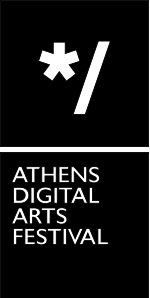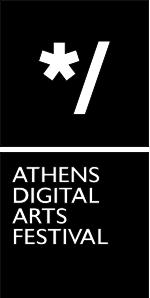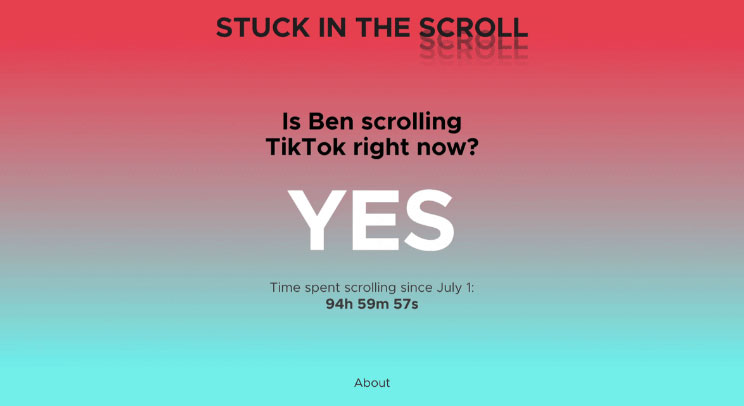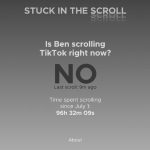Stuck in the Scroll is a compulsive scrolling monitor that reveals, in real-time, whether the artist is currently scrolling TikTok. Think of this work as a last-ditch effort, a sort of public confessional as therapeutic tool aimed at defusing the intense compulsion everyone feels every day to endlessly scroll the world’s most popular video app. It’s also a way of asking questions about the designed effects of the TikTok platform and related social media apps. Why do we keep on scrolling even when the videos on our For You page are boring, annoying, or unrelated to our interests? How is the app clouding our sense of awareness, frequently leading us into a sort of trance state propelled by infinite swiping? What is it about the TikTok interface that leaves us forgetting what we saw and losing track of how much time we ve spent? By making the artist compulsions public,he aims to not only break free of the engagement loop this app is trapping us in, but to also challenge the prevailing narratives about how and why we stay stuck in the scroll.
Ben Grosser
Ben Grosser creates interactive experiences, machines, and systems that examine the cultural, social, and political effects of software. Recent exhibitions include Centre Pompidou in Paris, The Barbican Centre and Somerset House in London, ZKM in Karlsruhe, the Louisiana Museum of Modern Art in Copenhagen, SXSW in Austin, and the Japan Media Arts Festival in Tokyo. His projects have been featured in The New York Times, The New Yorker, Wired, The Atlantic, The Washington Post, Le Monde, Der Spiegel, El País, and Folha. The Guardian (UK) proclaimed Grosser’s film ORDER OF MAGNITUDE to be a definitive artwork of the 21st century, “a mesmerising monologue, the story of our times.” RTÉ (Ireland) dubbed him an “antipreneur,” and Slate commended his work as “creative civil disobedience in the digital age.” His artworks are regularly cited in books investigating the cultural effects of technology, including The Age of Surveillance Capitalism, The Metainterface, and Investigative Aesthetics, as well as volumes centered on computational art practices such as Electronic Literature, The New Aesthetic and Art, and Digital Art. Grosser is Professor of New Media at the University of Illinois (USA), and a Faculty Associate at the Berkman Klein Center for Internet and Society at Harvard University.
